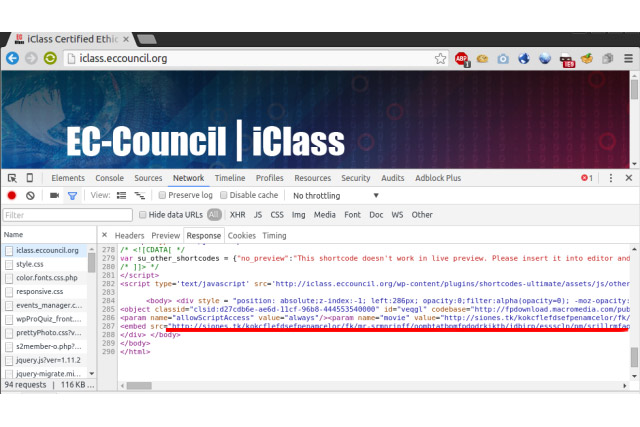
Admittedly, the hack in question was an elusive one. According to a FOX IT report, the Angler toolkit which had infected the site would further infect those who visited the site from a major search engine and were using Internet Explorer — likely suggesting a less than stellar knowledge of Internet security.
What’s heartbreaking is that the visitors were themselves clearly trying to learn — they were, after all, looking up courses on improving security.
But unfortunately the very site they visited was the one making the visitors vulnerable. So now a security firm has gone public (via Ars) with the information, in the hopes that it encourages action and discourages people from visiting the site until it’s safe again.
Related: Update: Mac ransomware may have flaws that allow file recovery
The notice states visitors who meet the criteria for infection may find themselves redirected to the Angler toolkit landing page, which then uses Flash or Silverlight plugins to infect the victim’s local machine with more malware.
Most worrisome is that the malware it then dumps on the user’s system is TeslaCrypt, a ransomware that immediately encrypts the user’s files and demands a 1.5 bitcoin ransom (equal to around $624) to decrypt them — potentially meaning that visitors to the CEH site could lose all of their important and personal files and images.
The malware program is very traditional too, offering just the payment option — unlike others, there is no offer to sign on as an affiliate.
Editors' Recommendations
- Hackers are using this incredibly sneaky trick to hide malware
- Some ethical hackers are making huge amounts of cash




